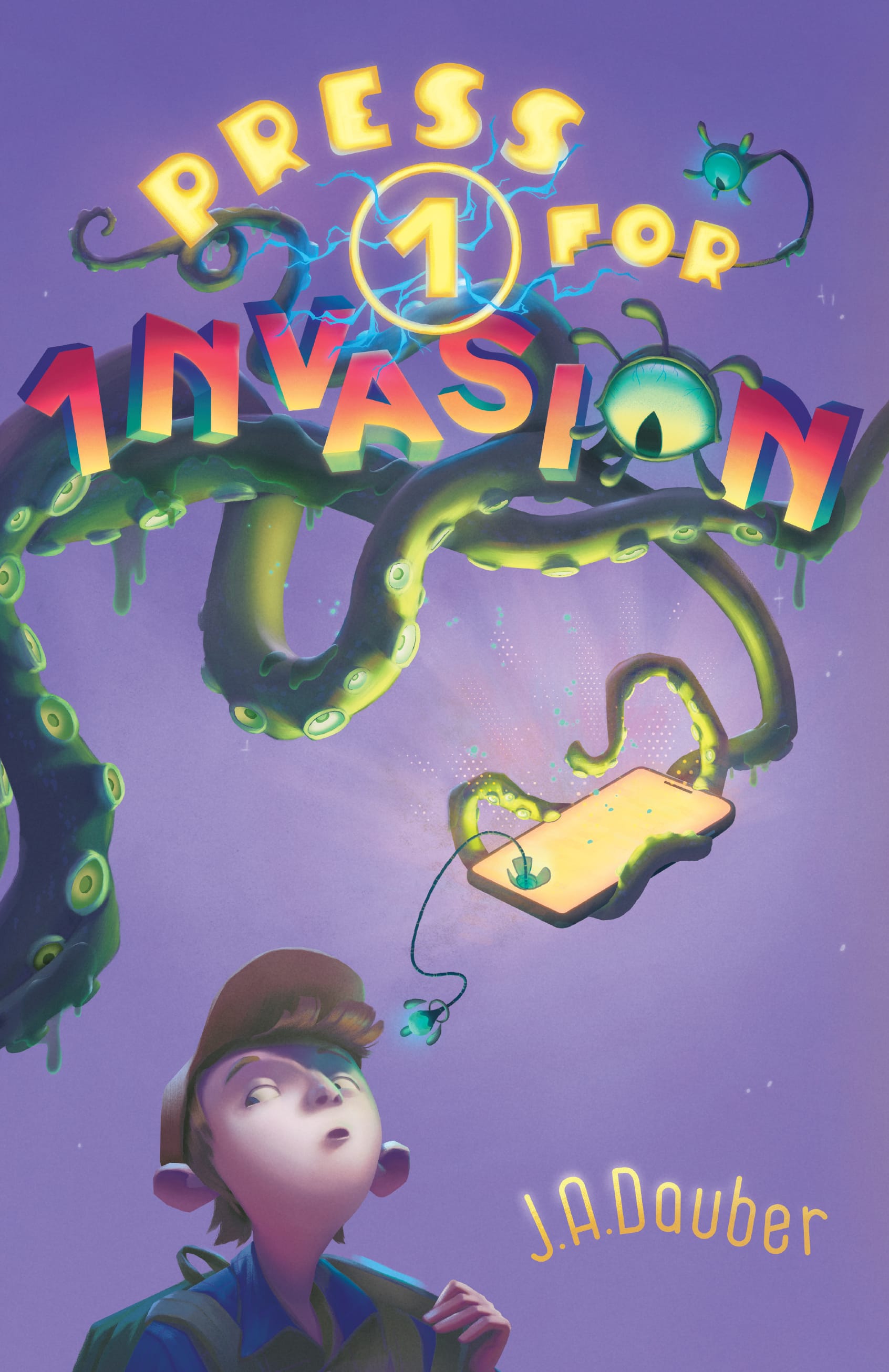Who are you?
Depends on the time of day. In the mornings and evenings, I’m mostly the father of three kids ranging from 12 to 6, two boys and a girl; for a good chunk of the day, once they’re on the school bus, I’m a professor at Columbia who teaches on subjects ranging from the history of world literature to the comedies of Mel Brooks and writes books on American comics and, most recently, American horror; and, presently, I’m the author of a new middle-grade novel called PRESS 1 FOR 1 INVASION.
What do you write?
My writing really depends on the subject, audience, and venue: I suspect that the middle-graders who I hope will love the story of Matt, Marcela, and their encounters with the extraterrestrial probably wouldn’t enjoy some of my heavily footnoted pieces on allusion in late eighteenth-century Enlightenment literature! But ever since I was a kid, the kind of writing that appealed to me the most was about stories: adventure stories of all kinds, with a little fear, a little comedy, lots of twists and turns mixed in. Like a lot of others on this site, I’d tried to do it off and on since I was a kid; and then, for career-related reasons, moved more to the analysis of these kind of stories rather than writing them myself; and then, in recent years, tried to find a balance and do both. I’m hopeful that it seems to be working out!
Where do you write?
Since I live in a New York apartment with a family of five, I try to write in my office at the university whenever I can; but I’m not particularly fussy - I’ll write wherever I need to to get my writing done for the day (see the next question). I’m fairly old-school, so I just write in Microsoft Word; I do tend to prefer a particular font to draft in (Cambria, 12 point), weirdly enough.

When do you write?
My three main rules for writing fiction (my process for writing my non-fiction books is quite different) are: 1. Write every day. 2. Editing is writing. 3. When drafting, stop in the middle of an exciting scene. When drafting, I work by word count rather than time limit; it’s a minimum of 500 words, and usually I stop soon after that, when I get to a natural stopping point - by which I mean an unnatural one, where I’m excited to get going the next day as well. When editing, it’s a different approach, usually a number of pages of the manuscript each day. (Editing is also a different process depending on whether I’m editing a draft before submission, or in response to an editorial deadline, of course.) This has developed as the process that seems to work most productively for me - obviously, as the kids say now, your mileage may vary.
Why do you write?
When it comes to fiction, I’m sure it’s more complicated than this - and, to be honest, who wants to peer too closely into something that seems to be working? - but if it’s a story that I want to tell, then I want to tell it, especially to kids, first mine, then other people’s. When it comes to non-fiction, it’s part of my job, and (lowers voice) it’s definitely a more fun part of the job than grading.
How do you overcome writer's block?
Ending each day’s writing in the middle of a scene or a moment definitely helps minimize it; knowing that editing is writing and that even just putting stinkeroo writing on the page can be edited/deleted/reworked entirely later on in the process when it feels less pressing helps, too; and switching between projects, which I often have the luxury of doing, helps a lot as well.
Bonus: What do you enjoy doing when not writing?
I grant that this is a somewhat conventional answer for this audience, but I read a lot. For work, mostly, but given that my research work includes comic books and horror novels, this is not particularly a chore!
My thanks to J.A. Dauber for today's interview.


